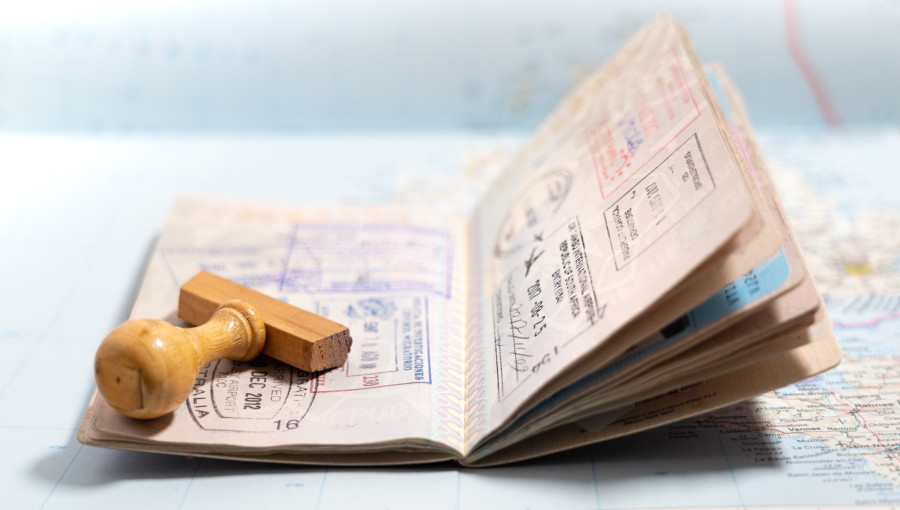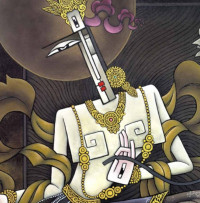Culture & Lifestyle
The agony of a stateless citizen
Being without a citizenship at 21 has cost me my ambitions that I had dreamed of since I was 16.
Vivek Baranwal
Saas Ferne Bahana Chahiyeko Chha Yahan
Gumnaam Sahar Ma Chhaya Bani Hindekai Chhu
These lines are from Desh Nikala, a song included in Bartika Eam Rai’s album Si Ma Na. Although this may sound like it could be applied to anyone’s life, they possess literal meaning in my life. I operate limited banking services in my mother’s name as banks won’t allow me to open an account. If you are wondering, no, I have not been blacklisted by the banks. I cannot open an account of my own because my 21-year-old self does not have a yellow card—citizenship. This also means that I do not have a state—I am stateless. My relationship with telecom companies is the same, in the shadows of my parents. It has been like this for the past five years.
I am also invisible to government bodies issuing driving licences, permanent account number cards, passport and voter identity cards, and conducting public service exams. Fortunately, my university is yet to question my visibility. But I am sure, I will become invisible to it too, after the convocation of my batch in about three years.
No matter how profoundly skilled I become, no corporations or business establishments would hire me as I am not a citizen.
When I thought I was a step closer to obtaining my citizenship, it was shattered by the Head of the State, twice. The House of Representatives and the National Assembly passed the Nepal Citizenship Act (2006) First Amendment Bill 2022, twice. The bill, in accordance with the Constitution, resolves my situation of being stateless and of about 500,000 others, an unofficial figure that lawmakers cite and the Ministry of Home Affairs stipulates.
You may ask, “If both your parents are Nepali citizens, how come you do not have citizenship?” In answer to that I ask you, “Do you know how many types of citizenship the Nepali state provides?”
My father holds citizenship by birth (Janmasiddha) because my grandfather did not have citizenship. If he did, then my father would have gotten citizenship by descent (Bansaj). My grandfather did not have citizenship because he never needed it. He would go in search of work in India, for months, and come home before the farming season arrived. That worked well for him. Little did he know then that his descendants would suffer the consequences of his seemingly inconsequential action.
Citizenship by birth was introduced in the Nepal Citizenship Act 2006 to resolve the statelessness of people like my father. However, the Act fails to mention what citizenship the children of those ‘citizens by birth’ individuals would be eligible for. Fortunately, the Constitution promulgated in 2015 facilitates the situation in Article 11(3) under Part 2.
Article 11(3) states, “A child of a citizen having obtained the citizenship of Nepal by virtue of birth prior to the commencement of this Constitution shall, upon attaining the age of majority [having aged 16], acquire the citizenship of Nepal by descent in case the child’s father and mother both are citizens of Nepal.”
My mother holds citizenship by descent. However, the unequal citizenship laws of our nation do not allow for the transfer of citizenship to children through their mothers alone. The monopoly on authority is vested in fathers, whether living or deceased. Not much has been done to deauthorise the monopoly of fathers and empower mothers.
The cost I have paid for being stateless
Astayeka Chahna Ajhai Pani Sangli
Arukai Yo Peti Ma Aafno Auchitya Khojekai Chhu
Quoting from the same song again, being stateless has cost me the ambitions that I, then 16, dreamed of since completing my Grade 10. I went from wanting to apply for Delhi University’s School of Journalism to being forced (by my situation) to pursue an undergraduate degree in Journalism at a government campus in Kathmandu. From wanting to practice reporting and storytelling passionately and being trained as a successful journalist to not getting hired by the media outlets. From wanting to apply for national and foreign embassy-based scholarships to struggling to apply for my campus scholarships. From wanting to fly abroad and gain exposure in my field to being confined within the territory of the country. Recently, I had to back myself off the Global UGrad Exchange Program that was offering a student to enrol in a United States university for one semester, fully-funded.
When it comes to excellence, whether in academics or at the work I am assigned, I leave no stone unturned and strive to stand out as the best performer. I acknowledge this characteristic of mine and feel proud of myself, because of it. However, all of it will be just rhetorical as long as I cannot capitalise on this very excellence.
I come from a lower-middle-class family with no generational wealth or property. My father, 50, is the first-ever graduate in my bloodline, followed by me as an undergraduate. His job as an accountant provides for my family.
Reservations among political parties over the married naturalised citizenship provisions, influenced by hypernationalism and patriarchal stand to unequal citizenship rights to women, have obstructed the provision that would resolve my issue.
No amount of public condemnation has affected this case in any way. The elections are over, and I can only hope that one of the newly-appointed leaders will recognise and solve this issue. The Head of State will get a new face in a few months. The ruling parties, who seemed to have understood the issue of being stateless and showed the urgency to resolve it, will supposedly run the government. They seemed pretty conscious while considering the contenders for the Head of State. Let’s see what the new House does to solve my case and that of others who are facing a similar issue.
Until then, I shall remain invisible in the eyes of the entities that demand a yellow card to acknowledge my being and sing, Ek Din Aaunchha Sifaris Liyera Yama Bata, Bhrama Bata.




 18.12°C Kathmandu
18.12°C Kathmandu















